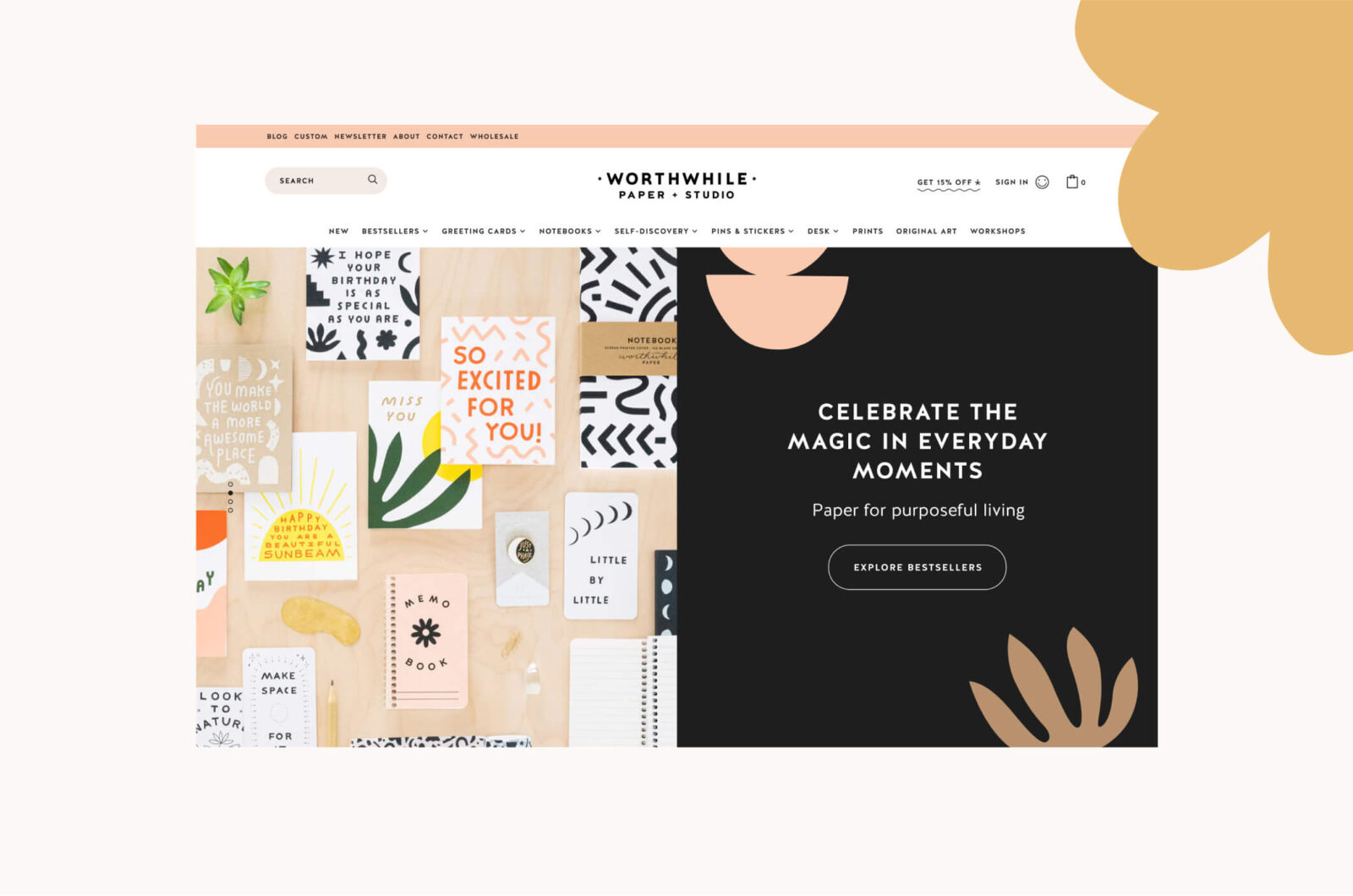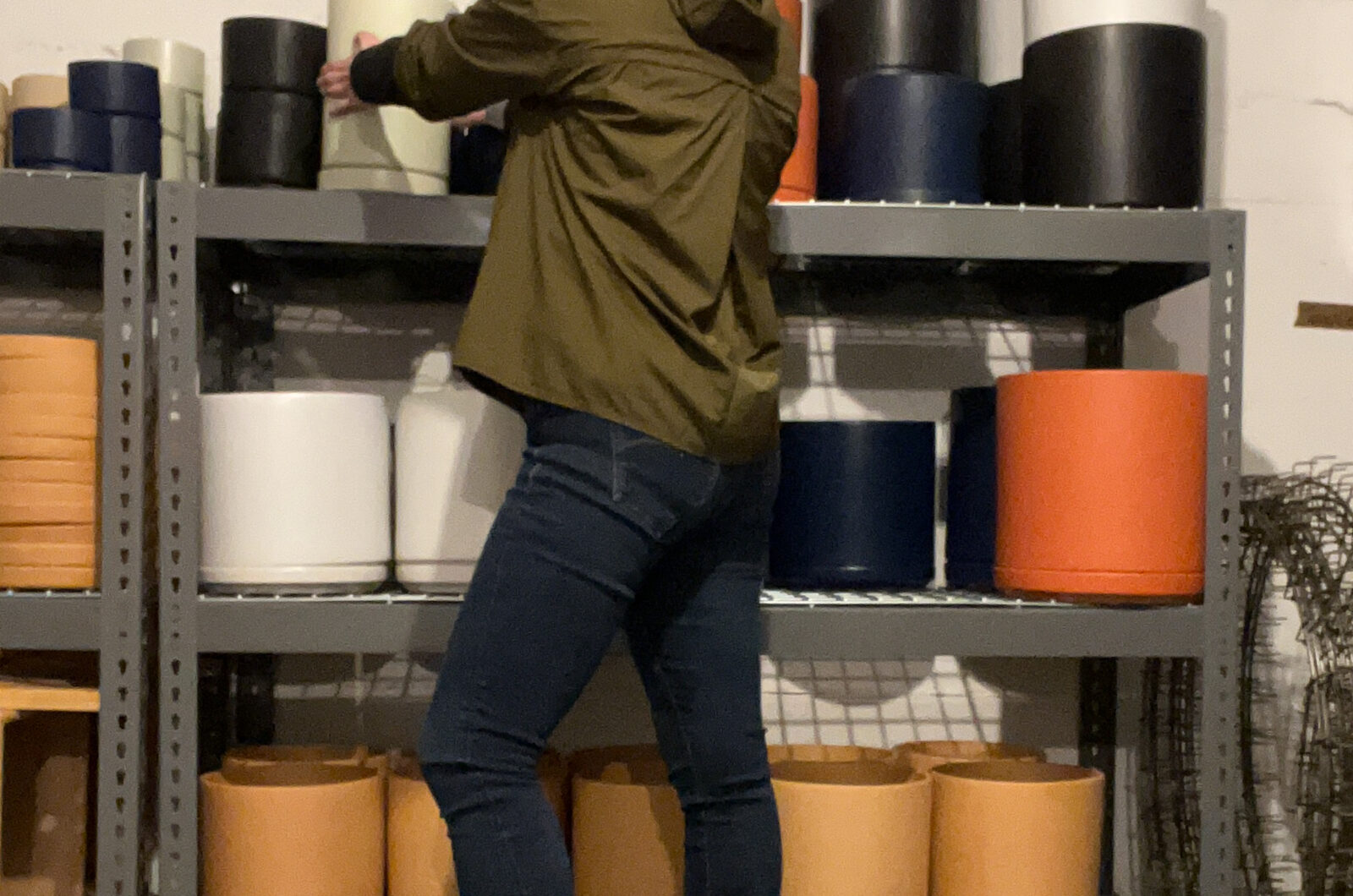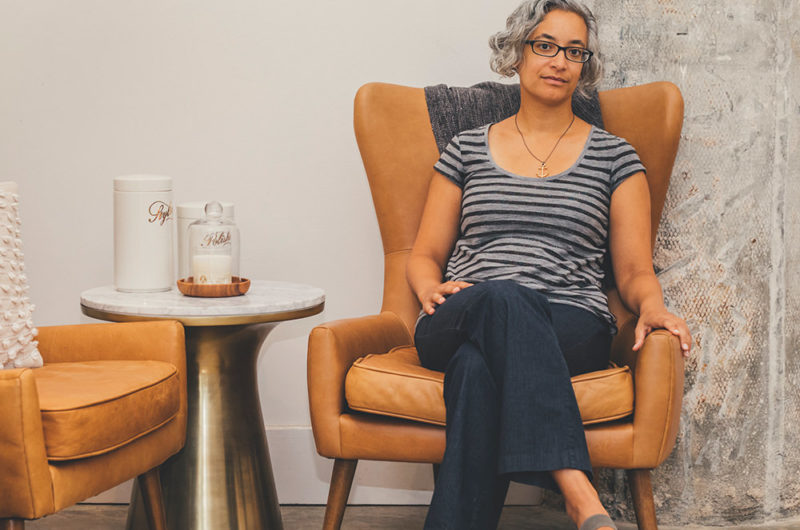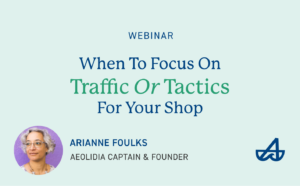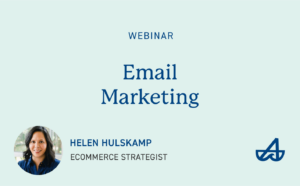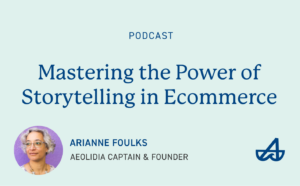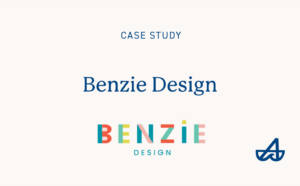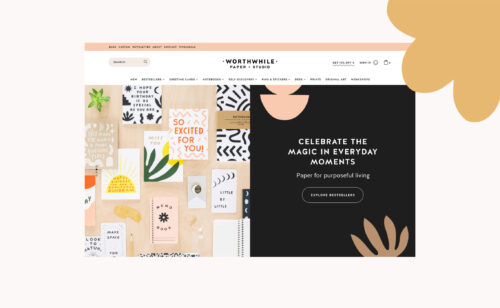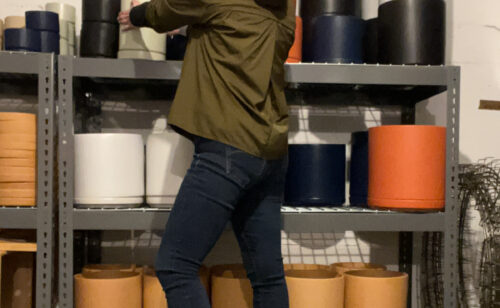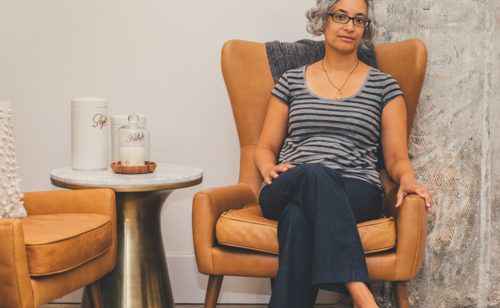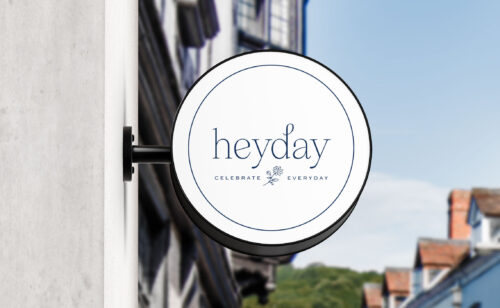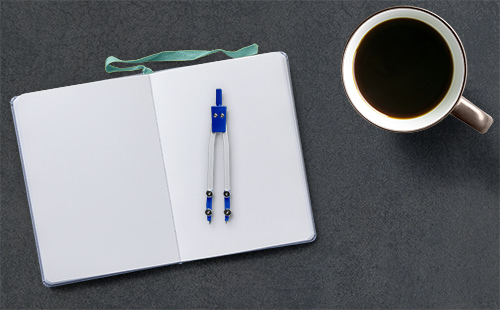
Joey Vitale of Indie Law joined us in our creative business owners’ Facebook group to answer questions about trademarking your business name. Watch the video below to learn more!
Topics covered:
- An overview of what trademark is and isn’t, and what you can and can’t protect locally and federally
- What to do if your trademark lapses
- Why it helps to have an attorney assist with your trademark
- When to switch from being a sole proprietor to an LLC
- Liability issues for allergies to products and weight limit testing for handbags
- What to do if someone copies your website content
For weekly tips like this, subscribe to our newsletter
"*" indicates required fields
Full transcript:
Joey: I’m super excited to be here. I’m an attorney for creative small businesses. I created my law firm, Indie Law, about a year and a half ago, really from the ground up with creative small businesses in mind. We work on the foundational pieces of protection for most small businesses, which is contract language, trademarks, copyrights, LLCs, and that kind of thing. So, any questions that you guys have, I’m happy to answer. Real quick disclaimer right out at the beginning. I am a lawyer. I’m not your lawyer, unless I am, which means that I can’t give any legal advice during this, and by legal advice, I mean that I can’t really apply the law to your specific situation and tell you what I think you should do with that specific situation. What I can do is try and pull out the general question that you might be asking and answer that as generally as I can so that it helps most of you guys.
Arianne: That is great, because I feel like what we’ve seen with creative businesses is they often get into business because they’re really interested in the products they make or, you know, whatever their particular talent or skill is in designing things and then all of the business stuff kind of comes next. So, figuring out the legal stuff is something that I know is stressful for a lot of people and it’s great to have somebody who not only knows what they’re doing, but understands creative businesses in particular. I feel like, you know, I’m not going to say “special needs” because that sounds a little derogatory, but they’re a little bit different. You know, it’s nice to work with people who totally understand your business and don’t think it’s unusual.
Joey: Yes. For sure.
Arianne: What are the most common things that you feel like creative businesses get stuck on or have questions for you?
Joey: When I have these discovery call sessions that I have a lot of with creatives, usually we talk for a while, and then their first real question (and maybe they don’t voice it this way) but it’s, “What will I start with?” Because there are so many kind of layers to the law when you get started as a business. What I like to do is to provide a general framework for, here’s kind of what matters first legally in your business. And then once you get that legal layer covered, then you can move on to the next layer because I think sometimes we tend to get ahead of ourselves and trying to protect parts of our business that haven’t really become assets yet.
Arianne: Yeah, that makes sense and we find that same thing too. There’s so many things that you need to do as a business owner, especially if you’re a sole proprietor, that sometimes you feel like you should do everything at once, somehow. It’s hard to figure out what order to do things in. So, yeah, that’s a good thing to be able to figure out. You know what? This is so cute. I just changed the branding on these videos. I used to have a little A up over my head and now there’s a little crown and if I slide to the side, there, I’m the queen.
Joey: I’m so bummed. I can’t see that from my view.
Arianne: It’s really silly. I think you’ll be able to see it on the replay.
Joey: Okay, good. That’s awesome.
Arianne: Okay, so I notice you talk about this a lot in your Facebook group and Stacy has asked us a question about protecting phrases. So, they have a product where they put phrases on the product. I’m not sure exactly what it is, but for example, maybe a mug that has a saying on it and since they have so many products, it’s going to be expensive to register for a copyright for each one, she says. She wonders if she can just put a TM mark after the phrase and if could you tell us a little more about a common law trademark and what we should know there.
Joey: Okay. Okay. So, let’s … I’m going to back up a few steps with that question because it’s a really good question.
Arianne: Yeah, it’s a big question.
Joey: Just so that everybody who is listening is on the same page about what’s going on here. So, when it comes to phrases that you want to put on an item, the two types of laws that you can think about are copyrights and trademarks. Copyrights protect works of artistic expression and trademarks protect more of the branding side of things. Some people ask, “Can I protect this phrase as a copyright?” Like if I have a … if I put together some type of an image that I put on a shirt and maybe it’s just a plain black background, but it’s like a phrase. At the end of the day, you can’t protect a phrase with copyright law. Copyrights can protect things like books or longer-form posts or writings, but they’re not meant to protect really short phrases. That being said, you have to make sure on the copyright side, that you’re not using a phrase that is part of a larger copyrighted work.
Let’s say that you wanted to borrow a line from like a song lyric, you’re starting to enter into a gray territory of whether or not that’s copyright infringement because you’re taking that phrase from a copyrighted work.
And so that’s the copyright side. I didn’t want to ignore that, but let’s go into the trademark because this is where it gets interesting and fun for me, but complicated.
Anything can be a trademark, which is pretty cool. So, what a trademark is, is it’s a source identifier. What I mean by that is when you observe that thing then you think of a specific business behind it. And so, like Starbucks, Target, those are kind of big examples of you hear that brand name and you think of a specific business, but anything can be a trademark. And by anything, I mean it doesn’t have to be visual, so like the … is it like the MGM lion intro with the roar?
Arianne: Yeah.
Joey: That roar is a registered trademark. So, a sound can be a trademark. A smell can be a trademark.
Arianne: You can trademark a smell? That’s fascinating.
Joey: Yeah, it’s very very rare, but Verizon is trying to do it right now. They are applying for a certain scent that they’re starting to put in their stores, so that when people go into the store, they immediately realize that they’re at a Version store. And so, they can …
Arianne: “Smells like Verizon.”
Joey: Weird, right?
Arianne: So weird.
Joey: I say that to really highlight the point that it’s a brand identifier and so when it comes to using an item on … are you putting a phrase on a shirt? The question is, is it existing as a trademark as a source identifier or is it just what the trademark offices calls, ornamental use? And so, something looks more like a brand, for instance, on a shirt if it’s like up here and it’s little and it’s a little slogan or a logo of a bear or something like that and so you think it’s, you know, an Abercrombie shirt or whatever. I don’t know the logo for Abercrombie, so I made up the bear, but that’s more of a brand. If it’s just a phrase that’s on a shirt or a mug, there’s less of an argument there that it’s source identification.
And so legally, you putting that phrase on that thing, you’re not really using it as a trademark. Does that make sense?
Arianne: That does, and Stacy has just added that she is interested in trademarking her product names. Is there some quick little bit of advice you can give about that?
Joey: Yeah. Yeah. Let me put a little pin in that and I’ll come right back to it because let me finish where I’m going with this because I want to make sure everybody understands where I’m talking about phrases and then we can talk about common things that seek trademark protections.
The question about can a phrase that I want to make sure that I can use on a mug. You can put a phrase on a mug. Legally, it’s probably not a trademark and I wouldn’t even put that TM there, which shows that you’re trying to use it as a common law trademark. We can talk about the symbols of trademarks in just a little bit. I don’t want to get too ahead of myself here, but there’s a difference between legally what’s a trademark and practically right now what people are thinking are trademarks and so the two things you have to think about are, am I obeying the law or doing things that are giving me legal protections? And then on the other hand, am I entering into a minefield of people who can get upset with me?
The unfortunate reality right now is there are people who are trying to register for trademarks that they are using ornamentally. For whatever reason, they’ve been able to kind of, sneak by with the reviewing attornies at the trademark office and so maybe they just have an application for a trademark, maybe they have a registered trademark and they’re now using that mark to prevent people from using phrases ornamentally. Legally, there’s not really merit to that argument, but practically, you know, it can just be a real headache for a creative business owner to be inundated with Cease & Desist letters and infringement reports.
It becomes less of a legal question and more of a business question, “do I want to enter or continue to be in this space where there could be all of these legal battles?” Where it might be a strategic business decision to pivot away from phrased-based items.
Arianne: Yeah, I’ve heard that people try and get each other’s Etsy shops shut down and all kinds of crazy stuff like that. You know, being on either side of that doesn’t sound very pleasant. Being the person trying desperately to protect a phrase that you can’t protect or being the person trying to use a phrase somebody else is trying to protect.
Joey: Exactly. Some people are trying, and I get it. You come up … maybe you come up with a phrase that you think is cool and kind of trendy and so you apply for a trademark on it and all of a sudden it does, you know, trend, and maybe there are hashtags around it. It’s really really difficult to enforce and maintain the rights to a trademark in a popular phrase because the more popular it becomes, the less, the weaker your argument is that there’s that source identification.
Arianne: Right. That makes sense. Okay. How interesting.
Joey: Yeah. It is interesting. So, back to the question about product names. When people ask me, “Hey Joey, I’m building, you know, some type of a retail business, what do I trademark?” Typically, the order is first, you want to get a registered trademark for the name of your business because you don’t want anybody to tell you, you know, “Here’s a Cease & Desist letter. I have already been using this name before you. You have to change yours.” It’s really helpful to play defense with registered trademarks to, kind of, put a stake in the ground and say, “I don’t want anybody else to ever tell me that I can’t use this name.” So, generally, I recommend getting a registered trademark for your business name first and then either a slogan associated with your business or like Stacy said with product lines, product lines are a big way to seek trademark protections. Again, the goal there is you’re doing it because they’re source identification there. When people hear about that product line, they think that you’re the business behind it.
Arianne: Okay and then how do you feel about Stacy instead of officially trademarking it, putting the TM next to it, and hoping for the common law trademark? Is that a really risky thing to do?
Joey: Yeah. So, let’s … yeah, great question. When it comes to the symbols, you can … there’s the circle R, which is reserved for a trademark that’s registered and then there’s a little TM symbol you can use to show common law trademark rights or if you’re not actually selling a good, but you’re selling a service, technically, you should be putting a little SM instead of a TM because you’ve got a service mark, not a trademark.
Here is the issue with common law trademark rights is that the moment that you start using a brand in commerce or the moment that you start having source identification for anything in commerce, you have a common law trademark, which means that you have exclusive rights to use that regionally.
The problem with that is that most businesses right now are selling across the US.
And so even with that little TM or that SM, that might be helpful to practically minimize the chance of other people using it, but without a registered trademark, you don’t have federal exclusive rights to use it, which means that another company in another state or even within the same state, but far enough away from you can use the same or a similar mark.
Arianne: Okay and even if their business is a competitor and people could be confused, that’s all fine if they’re in a different state?
Joey: Correct, with a common law.
Arianne: Okay, but not if you’ve registered it?
Joey: Yeah and so let’s back up a little bit because some people will tell me, “Hey Joey, I want to work with you because I want to trademark my business name.” I understand what they’re saying there, but I want to unpack and kind of be a little annoying fifth-grade grammar teacher here because you don’t trademark your business name by having it registered at the federal level. A trademark exists as soon as you start using that brand in commerce, as soon as you start selling a good or service associated with that brand in commerce. Again, the common law trademark applies right away. You don’t have to do anything for it.
So, when you’re wanting a registered trademark, you’re not wanting to trademark your business name, you’re wanting to get exclusive rights on a federal level for your trademark.
Arianne: Okay. Okay, that makes sense. I have one related trademark question, then we’re going to move to something else. Jaime says she trademarked her business name in 2004 and she accidentally let it lapse last year. What does she have to do to get reinstated?
Joey: There’s not an easy answer to that. There might be some things that we can do, but I would talk with an attorney because yeah and that’s another … let’s talk about some reasons why it’s helpful to have an attorney help you with this. Reason number one is there are the application is not really beginner-friendly and there are questions that they’re asking and a lot of red font and in all caps saying, “Are you absolutely sure that what you just wrote down is correct?” So, it can be kind of scary and there’s just a lot of room for error in it so an attorney can help you do it the right way and in a strategic way.
The second kind of hidden reason, but a lot of people don’t realize this if you apply for a registered trademark on your own without an attorney helping you, then your contact information is made public on the database. And what happens is you will start receiving spam mail from people who now have your contact information and they’ve gotten really good and what they’re now doing is they’re sending you letters that look like it’s coming from the trademark office telling you that you need to pay them more money for your application or for your mark. I’ve actually had clients who are now coming to me because they’ve fallen victim to those spam traps.
Arianne: Oh, no. That is no fun.
Joey: Yeah, so that’s kind of the hidden, and really once you realize that that’s an option, you know, having all that spam mail come to me instead of you can be a really kind of peace of mind thing. But going back to her concern there, yeah, a lot of people maybe they get through the application process and they get their registered trademark, but they don’t … maybe they actually did the application wrong and it’s not protecting what they think it’s protecting or they don’t understand there are enforcement and maintenance requirements. It’s really really important to understand how to maintain it, and how to enforce it because you can lose it, and if you lose it can typically be a long and expensive process to get it back.
Arianne: Okay. Yeah, that doesn’t sound fun. Sorry about that Jaime. I hope you can get some good help for that. Okay, so shifting gears quite a bit here. Lisa is wondering when she should switch from being a sole proprietor to an LLC to protect her business.
Joey: Great question. I get that question a lot and I have a different perspective on it than I think other attornies and I’ll tell you why. I went to a small business associate meeting a couple of months ago and there was actually an attorney that was speaking on the issue. I was just there, and somebody asked that same question, they said, “I’m a sole proprietor. When should I form an LLC?” And he said, “Well, the first thing you have to do is think about, you know, the type of business that you’re in. If it’s pretty low risk, you’re probably okay as a sole proprietor.” He kind of gave that piece and then a business mentor spoke up and said, “Hey, if I can just, for a minute, kind of respond to that. I, as a mentor, have given that advice to businesses before and I’ve heard back from some of them that they have still gotten sued so I, as a business mentor, have learned the hard way that there’s really no such thing as a low-risk business anymore.”
Arianne: Okay. That’s good to know.
Joey: So, my response is as soon as you can budget doing it … I don’t want to get too salesy on this call, but we do have two different ways that we can help clients get an LLC. One is a full, kind of, LLC formation package where we do everything on your behalf. We have a light version of that package, which is half off where we tell you what steps you can do yourself and then we come in and do the remaining steps. So, that’s a really great option if you are kind of leaning toward the direction of wanting to form an LLC, but there are certain steps to it that aren’t rocket science.
We’re happy to do it for you if you want us to, whether you’re busy or you just aren’t too comfortable with technology and what it’s asking, but we really have enjoyed our kind of half-price offering because then we can steer people in the right direction and then make sure that they’ve got everything set up the right way moving forward. The other important thing about an LLC is, you know, legally, it separates your personal assets from your business’s assets, which means that knock on wood, if anything ever happened to you, if anybody sued you, they would only be able to go after the assets that are owned by the business. So, your car would be safe, your house would be safe, that kind of thing.
But, I’ve actually found that forming an LLC goes beyond just that legal separation because as you can probably attest to Arianne, having a separation between business and personal is super important. And just a mindset shift of my business is a completely separate thing than myself is a really healthy thing to start doing. So, having a separate bank account, and being able to turn it off for the day, which is something that I still struggle with.
Arianne [joking]: Is that possible?
Joey: Right, but it’s just a really really, you know, as businesses that are growing, it’s just something that I think that every business should do and it’s something that I think that people should be really honest with themselves because sometimes people come to me and they’re asking for a more high-end service offering that we offer, like a trademark or something. And then I’ll ask them, “Hey, have you formed an LLC?” And they’re like, “Oh, no. We’re not really like there yet.” And I’m like, wait a minute. If you think that you’re there to get trademark protection, but you don’t think that you are needing an LLC yet, we might want to revisit what these priorities are for you.
Arianne: Yeah, I agree. We became an LLC so long ago, I don’t remember anything about it, but I don’t remember it being super daunting. I don’t think it’s as hard or scary as people think it is. It’s a pretty straightforward simple process, especially if you have help. And having my business completely separate from my personal stuff is my favorite thing.
Joey: Yeah.
Arianne: It’s really good.
Joey: Yeah.
Arianne: I have two questions that are somewhat related. These are both kind of about liability issues. We have one person who sells lotions and massage oils, and she is concerned about allergic reactions and then we also have somebody who makes bags, and she says that they carry up to 30 pounds, but she’s wondering what her liability is if one of her bag straps breaks or something like that. A whole lot of issues there.
Joey: Yeah. So, interesting questions. There’s not a whole lot that I can respond to there, except for that some of that you can address in contractual language. Whether you are having your customers or contract actually sign a contract with you or if you’re in this group it’s more than likely that you have like terms of use at the bottom of your site. You can have terms in that terms of use that address the situation. If they agree to certain things under a contract basis, then you can say, “Hey, you agreed in the contract that you either waived liability in this sense.” Or whatever.
There are other sets of layers of protections for your business that go beyond the law that I can’t really speak to. When it comes to things like safety and compliance, that’s really outside my wheelhouse, but there are some really great Facebook communities, if you guys are interested that are all about product testing. The big name that I’m seeing everywhere is Misty Henry Product Consulting.
Arianne: Okay.
Joey: She has a really large group called US Safety and Compliance.
Arianne: Okay, that’s good to know. And then when you said that a contract might be helpful, would that also work for an eCommerce site if it was in the terms of purchase or do you need to be more direct and right in your customer’s face about something like that.
Joey: Sure, sure. So, yeah you can have it in terms and this is probably something where you can kind of educate me a little bit on Arianne, but when it comes to sites like Shopify, to an extent Shopify has a set of terms that people agree too. You can also have your own additional layer of terms that you’re saying that your buyers are agreeing to.
Arianne: Yeah, you can write your own terms and I believe you could also set it up so someone has to check a box to agree to specific terms, so if you were concerned that could be an extra thing that you did there.
Joey: Yeah. The check-a-box function … if you can’t get it in writing, you really want to make sure that they can never argue that like stuff was hidden in the fine print. Any step that you can take to where they say that they agree that they’ve read it and reviewed it, even if they don’t. We’ve all been there. We’ve all downloaded, you know, our phone download that said like, you have to agree to these before we give you the new release and we don’t actually scroll through it.
Arianne: Okay. Okay, cool.
Joey: When it comes to insurance, that’s outside of my wheelhouse really, but whether and to what extent your business can and should get insurance is something that I found you can get a pretty good answer through by going to score.org and getting a free score mentor and then telling him about your business.
Arianne: Okay, that sounds like a good idea. We have just a couple of minutes left here and a huge meaty question that you don’t have time to answer.
Joey: Okay.
Arianne: But, maybe you could very quickly speak about what to do if somebody copies your photos on your website?
Joey: I do have a blog post on this that I can link up to. You want to be careful. There’s a set of steps that you can take. The first thing you want to make sure is that all of your communications with that person if you do reach out to communicate with them are in writing in some way. No phone calls. You want to play good cop before you play bad cop. They might be new business owners who don’t really understand the fact that what they’re doing is wrong. Yeah, there’s … I’ll attach the blog post because it’s easier for I think me to just give you guys that list than to try and walk through it now because it is kind of a case-by-case situation.
The one thing that you want to be careful of, people don’t realize this, but I wanted to highlight it is don’t get too Cease & Desist letter sending happy. Because what a lot of people don’t realize is if I sent a Cease & Desist letter your way Arianne, to tell you to stop doing something, yeah, my letter that I send to you might say like if you don’t stop this, I’m going to sue you. But, me sending you a letter like that, actually gives you the right to start a lawsuit.
Arianne: Oh, yeah.
Joey: And so, you can file a lawsuit in your state, meaning I have to then have to come to you and you start what’s called a lawsuit for a declaratory judgment
Arianne: Oh, that doesn’t sound fun.
Joey: Yeah. So, don’t get too legal happy on sending out these accusations of things because it does give the other person the triggered right then to start their own lawsuit. Before you send that Cease & Desist letter officially, you might want to chat with an attorney to just kind of, get a sense of your situation. What they think you should do.
Arianne: Yeah. That makes good sense. I’m a big proponent of going is as good cop in pretty much every situation, first. No reason to start out as bad cop.
Joey: Yeah.
Arianne: Okay, that’s great Joey. It looks like we did it. Can you let us know where we can find you in case we have other questions?
Joey: Yeah. For sure. You can go to indielaw.com is my website. I’ve got a number on there that you can call or text if you’d like. I also have a Facebook group called The Friends of Indie Law and it’s an interesting group. We do a lot of legal talk in there, but I understand that for a lot of creatives, you know, the law is only one of the many plates that you’re juggling and trying to think about and so I’m trying to use this group as a way of collectively maintaining momentum for the members. So, asking questions, prompting conversations that are allowing everybody to kind of focus on what matters in their business because as a creative, it’s so easy to get sucked into the fun stuff of the reason why we started and sometimes we have to be real with ourselves about, is the time that we’re spending even though we are enjoying it, is that really what’s the revenue-generating part of the business?
Arianne: Yeah. That’s so good. I’ve been in your group for a little while and I really love it. You posted something a couple of days ago about is this a ten times activity I’m doing or a ten percent. And that’s just what I’ve been thinking about a lot lately. I sent that out in my newsletter this morning.
Joey: Yeah, I saw that too in your email and I, you know, it’s actually been amazing. I had a 10x meeting with my team yesterday and it was awesome. We spent an hour … if anybody who has a team, even if you just have a VA, I highly recommend this. Put aside an hour and have some type of icebreaker that just kind of gets their creative juices flowing and then for a half an hour, just have everybody write down as many ideas as they can that might help the business.
Arianne: Yeah. That’s great.
Joey: And then you just go through them one by one and say, “Is this a 10x idea or a 10% idea?”
Arianne: Right. I love that so much. I feel like I need a reset on that a lot because sometimes I’ll be in 10x mode and months will pass and I realize all I’m doing is 10% stuff.
Joey: Right. Well and it’s such a … I’m really glad that it resonated with you because, you know, somebody sent a similar message to me and it got me thinking. You know, we as creatives, we have limited time to work on our businesses and I think it’s a really really powerful reminder to think about what you’re doing and really being honest with yourself about is this something that is going … that should be something I’m prioritizing right now.
Arianne: Yeah, make every moment count.
Joey: Exactly.
Arianne: Okay, that is great Joey. Thanks so much for joining us.
Joey: Thank you guys. This was great.
A Newsletter That Goes Beyond Shopify 101
It’s easy to find beginner info about ecommerce online. If you’re past that? Subscribe to our newsletter for advanced strategies and need-to-know info for established shops. You'll get:
- Weekly tips to help you market and sell your products
- Updates when there is news that may impact your site
- Round ups of interesting links and info for brands
- Invites to our live trainings and webinars
- Instant access to our past emails
"*" indicates required fields
Related Posts
Let's take your online shop to the next level
The Shopify websites we design have a reputation for substantial improvements to ecommerce conversion rates and online sales. Let's talk!

